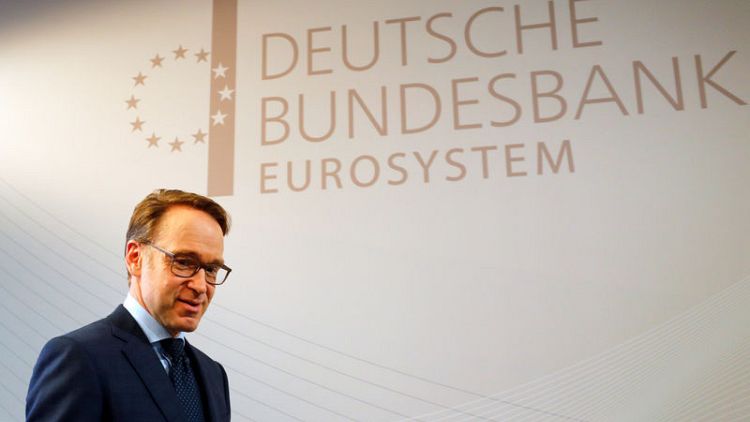FRANKFURT (Reuters) - There are early signs that German consumption is starting to rebound and indicators suggest Europe's biggest economy is only suffering a temporary slump, not the start of a recession, Bundesbank President Jens Weidmann said on Thursday.
Having struggled for much of the past year with an unexpected slowdown, investors are increasingly concerned that a long heralded recovery may not come, a risk to the entire currency bloc as Germany has been the engine of recovery since the euro zone's debt crisis.
Indeed, the German economy could expand by just 0.5 percent this year, the government predicts, as export demand for industrial goods slump, hurting a vast manufacturing sector already suffering under the weight of global trade disputes.
"However, given excellent labour market conditions and rising incomes, I expect private consumption in Germany to overcome its weakness," Weidmann, who sits on the European Central Bank's Governing Council, told a business forum.
"There are early signs of this already as the retail sector recorded strong growth in the first quarter."
But Weidmann also warned that super easy monetary policy, which is aiding the recovery, should not be made permanent given its side effects.
Ultra low rates over a long period could inflate asset bubbles, keep unviable companies afloat and the biggest firms could also use low borrowing costs to gain even more market concentration, he argued.
Record low rates also diminish the ECB's policy arsenal in case of a new crisis as there is no room to cut interest rates and the ECB would be forced to invent new policy tools to boost the economy.
"The task of monetary policy is to ensure price stability," Weidmann said. "This means reacting to the weak domestic price pressures but also continuing on the path of policy normalization and not postponing unnecessarily if the inflation outlook permits it."
(Reporting by Balazs Koranyi; Editing by Janet Lawrence)



